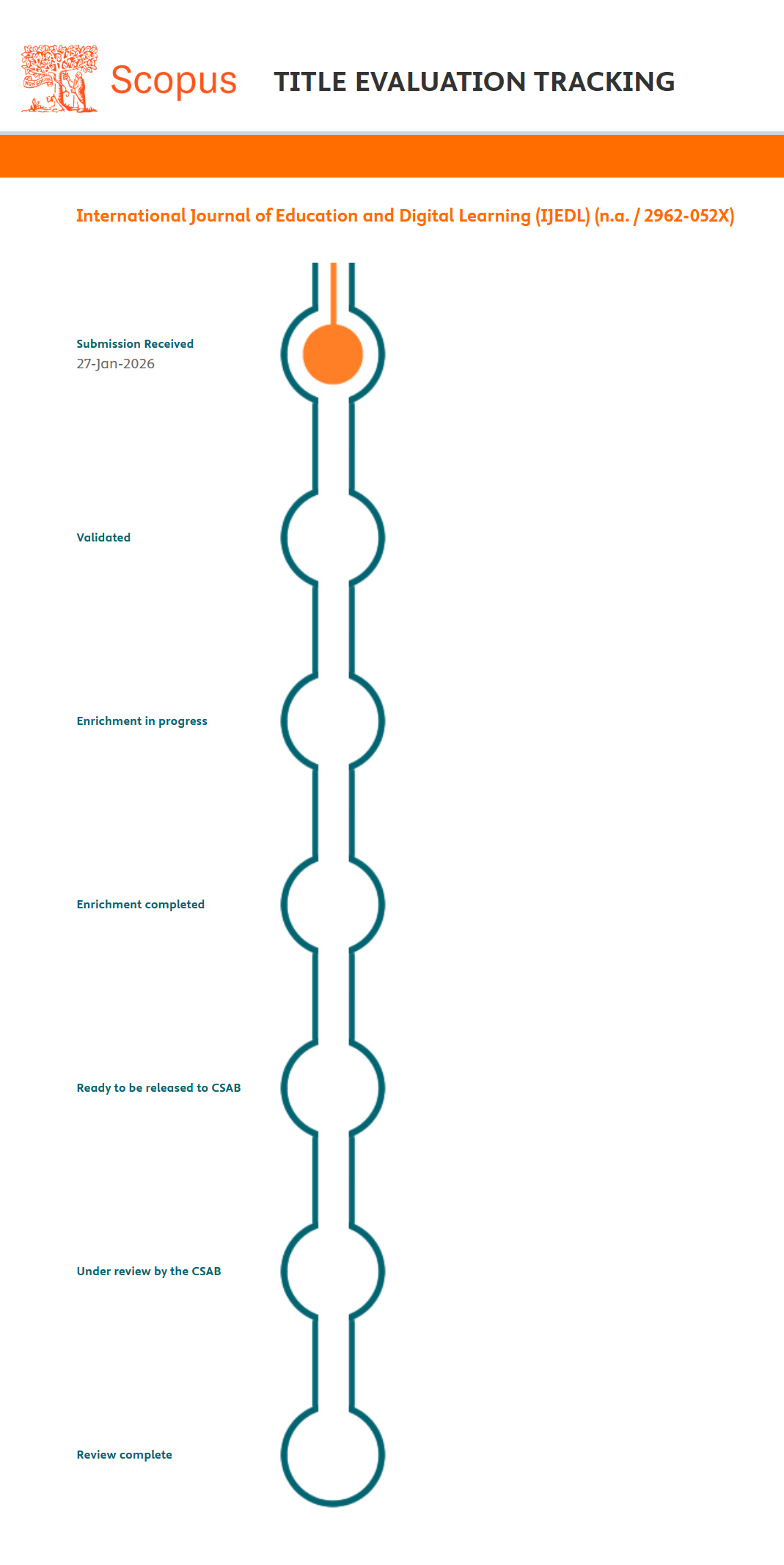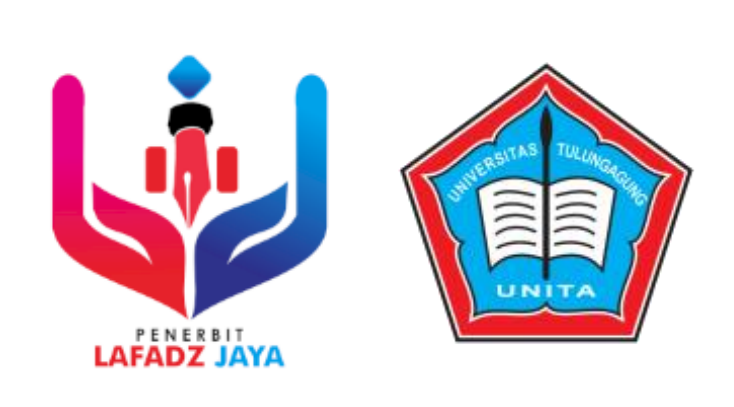The Use of Online Games for English Vocabulary Learning Media in Teacher Working Group: Some Advantages and Barriers
DOI:
https://doi.org/10.47353/ijedl.v1i5.30Keywords:
Online games, Kahoot, English Teacher Competence, VocabularyAbstract
This study aims to measure the extent of the Kahoot! Effectiveness in improving the professional competence of English teachers in terms of memorizing vocabulary. The study was conducted in the teacher working group (KKG or MGMP) by taking 30 English teachers at random. The system that will be carried out is by control and experiment class then compares the scores both of them. In addition, an in-depth exploration (mix method) was conducted by interviewing the teacher whether the Kahoot! may be used in the next forum. The results of the study showed that control group only could memorize 5,33 in average however experiment class got 8,6 in average so it means that there is 33% distinction between both of them. Then, this result is strengthened by calculation on Wilcoxon Signed Rank that showed that the sig value 0,002 is greater than 0.05 so it also means like aforementioned. Kahoot app! found it very helpful in memorizing vocabulary because of its flexibility that it can be accessed from anywhere (e-class) but there are still many senior teachers, who are technology savvy, cannot access kahoot! especially if it will be implemented in the KKG or MGMP of English teachers.
Downloads
References
Aflalo, E. (2014). The Invisible Barrier to Integrating Computer Technology in Education. Journal of Education and Learning, 3(2). https://doi.org/10.5539/jel.v3n2p120
Ahmadi, M. R. (2018). The Use of Technology in English Language Learning: A Literature Review. International Journal of Research in English Education, 3(2), 115–125. https://doi.org/10.29252/ijree.3.2.115
Al-Kurdi, O., El-Haddadeh, R., & Eldabi, T. (2018). Knowledge sharing in higher education institutions: a systematic review. Journal of Enterprise Information Management, 31(2), 226–246. https://doi.org/10.1108/JEIM-09-2017-0129
Al Rasyid, H. (2015). Fungsi Kelompok Kerja Guru Bagi Pengembangan Keprofesionalan Guru Sekolah Dasar. Sekolah Dasar, 24(2), 143–150.
Bani, A. Al. (2015). Implementasi Quality Assurance Dalam Pengembangan Mutu Sumber Daya Manusia di Fakultas Agama Islam Universitas Muhammadiyah Malang, Tesis [UIN Maulana Malik Ibrahim Malang]. http://etheses.uin-malang.ac.id/3226/
Bavi, F. (2018). The Effect of Using Fun Activities on Learning Vocabulary at the Elementary Level. Journal of Language Teaching and Research, 9(3), 629–639. https://doi.org/http://dx.doi.org/10.17507/jltr.0903.24 The
Breen, M. (1987). Learner contributions to task design. In Language Learning Tasks. https://doi.org/https://doi.org/10.1075/tblt.1.18lea
Candlin, C. N., & Murphy, D. (n.d.). Language learning tasks. Prentice-Hall international.
Castells, M. (2009). The Information Age: Economy. Society and Culture. In The rise of the network society (Vol. 1, Issue 96). https://doi.org/10.1002/9781444319514
Chaudron, C. (1986). The Role of Error Correction in Second Language Teaching.
Chomsky, N. (1986). Knowledge of Language: Its Nature, Origin, and Use. Praeger. https://books.google.co.id/books?id=b0VZPtZDL8kC
Compton, L. K. L. (2009). Preparing language teachers to teach language online: A look at skills, roles, and responsibilities. Computer Assisted Language Learning, 22(1), 73–99. https://doi.org/10.1080/09588220802613831
Derakhshan, A., & Khatir, E. D. (2015). The Effects of Using Games on English Vocabulary Learning. Journal of Applied Linguistics and Language Research, 2(3), 39–47.
Dudung, A. (2018). Kompetensi Profesional Guru. JKKP (Jurnal Kesejahteraan Keluarga Dan Pendidikan), 5(1), 9–19. https://doi.org/10.21009/jkkp.051.02
Flores Quiroz, M., Gutiérrez, R., Rocha, F., Valenzuela, P., & Vilches, C. (2021). IMPROVING ENGLISH VOCABULARY LEARNING THROUGH KAHOOT!: A QUASI-EXPERIMENTAL HIGH SCHOOL EXPERIENCE. Teaching English with Technology, 21(2), 3–13. http://www.tewtjournal.org
Flowerdew, J. (1993). Content-based language instruction in a tertiary setting. English for Specific Purposes, 2(12), 121–138. https://doi.org/https://doi.org/10.1016/0889-4906(93)90014-F
Ikemoto, S., Yang, C., & Tan, A. (2015). Basal ganglia circuit loops, dopamine and motivation: A review and enquiry. Behavioural Brain Research, 290, 17–31. https://doi.org/10.1016/j.bbr.2015.04.018
Kayaaltı, M. (2018). A Literature Review on the Impact of Online Games in Learning Vocabulary. International Journal of Scientific and Research Publications, 8(2), 312. www.ijsrp.org
Kayalar, F. (2016). Cross-cultural comparison of teachers’ views upon integration and use of technology in classroom. Turkish Online Journal of Educational Technology, 15(2), 11–19.
Kling, R., & Zmuidzinas, M. (1994). Technology, ideology and social transformation: The case of computerization and work organization. International Review of Sociology, 5(23), 28–56.
Long, M. H., & Crookes, G. (1992). Three Approaches to Task‐Based Syllabus Design. (26th ed.). TESOL Quarterly.
Marbun, T. M., & Harpain. (2016). The Application of Kahoot! to Improve Classroom Dynamics and Learning Process in English Process in English Structure Class. Jurnal Linguistika, 7(2), 15–21.
Masduqi, H., & Fatimah, F. (2021). LEARNING VOCABULARY THROUGH GAMES: A CRITICAL REVIEW. Education of English as Foreign Language, 4(2), 66–70. https://doi.org/10.21776/ub.educafl.2021.004.02.02
Mawarni, A. M., Suwandi, & Susanto, D. A. (2021). The Effectiveness of Fun Game Kahoot as A Media in the Teaching of Vocabulary. JELTIS: Journal of English Language Teaching, Linguistics and Literature Studies, 1(2), 133–146.
Meskill, C. (1999). Computers as Tools for Sociocollaborative Language Learning.
Mohd Muhridza, N. H., Mohd Rosli, N. A., Sirri, A., & Abdul Samad, A. (2018). Using Game-based Technology, KAHOOT! for Classroom Engagement. LSP International Journal, 5(2), 37–48. https://doi.org/10.11113/lspi.v5n2.77
Nurlaeli, Y., & Saryono, O. (2018). Efektivitas Musyawarah Guru Mata Pelajaran (MGMP) Dalam Meningkatkan Kinerja Mengajar Guru Bahasa Inggris. Indonesian Journal of Education Management and Administration Review, 2(2), 308–317.
O’Dell, F., & Head, F. (2003). Games for Vocabulary Practice: Interactive Vocabulary Activities for All Levels. Cambridge University. https://books.google.co.id/books?id=0PrOngEACAAJ
Oktaria, A. A., Rohmayadevi, L., & Murwantono, D. (2021). ONLINE GAME QUIZ “KAHOOT” IN TEACHING ENGLISH FOR STUDENTS OF SMP MUHAMMADIYAH YOGYAKARTA. PROJECT (Professional Journal of English Education), 4(2), 290. https://doi.org/10.22460/project.v4i2.p290-296
Papadakis, S. (2018). The use of computer games in classroom environment. International Journal of Teaching and Case Studies, 9(1), 1–25. https://doi.org/10.1504/ijtcs.2018.10011113
Putera, A. R., Aisyah, L., Misnasanti, Mahfuzah, A., & Shaddiq, S. (2022). Manajemen Pembiayaan Pendidikan Lembaga Kursus Bahasa Inggris : Antara Profit dan Pemenuhan Kebutuhan Siswa. Jurnal Bahana Manajemen Pendidikan, 11(1), 48–54. https://doi.org/https://doi.org/10.24036/jbmp.v11i1.116590
Rochimah, H., & Muslim, S. (2021). Students’ Perceptions in Using the Kahoot! Game on Reading Comprehension Learning. AL-ISHLAH: Jurnal Pendidikan, 13(3), 2213–2222. https://doi.org/10.35445/alishlah.v13i3.1115
Sánchez-Mena, A., & Martí-Parreño, J. (2017). Drivers and barriers to adopting gamification: Teachers’ perspectives. Electronic Journal of E-Learning, 15(5), 434–443.
Sandholtz, J. H. (1997). Teaching with technology: Creating student-centered classrooms. ERIC.
Schieffelin, B. B., & Ochs, E. (1986). Language Socialization. Annual Review of Anthropology, 15(1), 163–191. https://doi.org/https://doi.org/10.1146/annurev.an.15.100186.001115
Snow, M. A. (1991). Teaching language through content. Teaching English as a Second or Foreign Language, 2, 315–328.
Sukirman, S. (2020). Efektivitas Kelompok Kerja Guru (KKG) dalam Peningkatan Kompetensi Guru. Indonesian Journal of Education Management & …, 4(1), 1–8.
Susmiatun, A., Yuliejantiningsih, Y., & Abdullah, G. (2021). Pengaruh Motivasi Berprestasi Dan Partisipasi Guru Dalam Mgmp Terhadap Kompetensi Profesional Guru Bahasa Inggris Smp Di Kabupaten Kendal. Jurnal Manajemen Pendidikan (JMP), 9(3), 284–293. https://doi.org/10.26877/jmp.v9i3.8120
Ta’amneh, M. A. A. A. (2017). The Effect of Using WhatsApp Messenger in Learning English Language among University Students. International Research in Education, 5(1), 143. https://doi.org/10.5296/ire.v5i1.10801
Tsai, H. C. (2015). A senior teacher’s implementation of technology integration. International Education Studies, 8(6), 151–161. https://doi.org/10.5539/ies.v8n6p151
Tuan, L. T. (2012). Vocabulary Recollection through Games. Theory and Practice in Language Studies, 2(2), 257–264. https://doi.org/10.4304/tpls.2.2.257-264
Warschauer, M. (1998). Electronic literacies: Language, culture, and power in online education. Routledge.
Warschauer, M., & Meskill, C. (2000). Technology and second language teaching. In Handbook of Undergraduate Second Language Education (Vol. 15, pp. 303–318).
Zuboff, S. (1988). In the age of the smart machine: The future of work and power. Basic Books, Inc.
Zulhermindra. (2016). Meningkatkan Kompetensi Pengelolaan Pembelajaran Guru Bahasa Inggris Sekolah Dasar Melalui Kegiatan Kelompok Kerja Guru. Ta’dib, 17(2), 102. https://doi.org/10.31958/jt.v17i2.265
Downloads
Published
How to Cite
Issue
Section
License
Copyright (c) 2023 Muhammad Reza Fadhilah, Erna Andriyanti, Agustian Ramadana Putera

This work is licensed under a Creative Commons Attribution-ShareAlike 4.0 International License.












